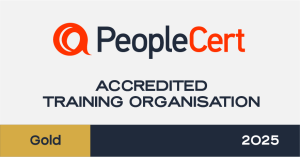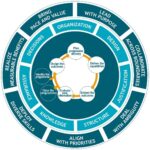Call Us
 (03) 2035 9258
(03) 2035 9258

[Updated April 2021 - MSP 5th Edition]
Managing Successful Programmes (MSP®) represents proven good practice in the successful adoption of enterprise agility through the application of programme management. It is a framework whereby large, complex change can be broken down into manageable, inter-related projects.
Today's organisations exist in a climate of constant and increasing change. Organisations that have learned how to transform themselves through effective leadership and strategic control are more likely to survive and prosper. Programme management is increasingly being recognised as key to enabling organisations to manage that transformation.
Where there is major change there will be complexity, risk, many interdependencies to manage, and conflicting priorities to resolve. Experience shows that organisations are likely to fail to deliver change successfully where:
Adopting a programme management approach such as MSP provides a structured framework that can help organisations avoid these pitfalls and achieve their goals.
MSP defines the roles and responsibilities of all who need to form part of the leadership of a programme. Effective leadership of a programme is achieved through informed decision-making and a flexible management regime. The key roles involved are:
There are three lenses to the MSP framework:
Principles - the common factors that underpin the success of any programme.
Themes – covering essential governance and controls.
Processes – an incremental lifecycle that is flexible and adaptable yet enables an orderly progression with clear decision criteria

Copyright Axelos Limited
Also available as 5-day combined Foundation/Practitioner course or 3-day Foundation module on its own
The aim of this course is for each student to be able to work in a programme, including:
The MSP Foundation course module is appropriate for:
The purpose of the Foundation qualification is to confirm you have sufficient knowledge and understanding of the MSP guidance to interact effectively with those involved in the management of a programme, or act as an informed member of a programme office team, business change team or project delivery team working within an environment supporting MSP.
Fees per person
| MSP® Managing Successful Programmes Combined with Exams (5 days) | ||
| Live Virtual Training: | MYR 10,050 + sst | |
| MSP® Managing Successful Programmes Foundation Course & Exam (3 days) | ||
| Live Virtual Training: | MYR 7,260 + sst | |
| MSP® Managing Successful Programmes Practitioner Course & Exam (2 days) | ||
| Live Virtual Training: | MYR 6,300 + sst | |
| All participants will receive: | |
| • Practice Examinations | |
| • MSP Foundation Certificate Exam - Included: Take2 Re-sit Exam | |
| • MSP Practitioner Certificate Exam - Available to purchase via PeopleCert - Take2 Re-sit Exam option. | |
| • Unparalleled Post Course Support | |
| Course Materials: | |
| • HARD COPY + E-COPY: Official MSP Manual Managing Successful Programmes published by AXELOS Limited | |
| • HARD COPY: Comprehensive Course Workbook |
|
The MSP Foundation/Practitioner course includes 2 exams.
Live Virtual Training – Participants will be provided with an online exam voucher to sit the exams at a time and date of their choosing within 12 months of the course. The web-proctored exams are available 24/7 and run by the examination institute PEOPLECERT.
Face-to-Face Training – Participants will be provided with a paper-based exam which is completed whilst at the course in the same venue of the course itself.
There are no prior prerequisites for MSP Foundation.